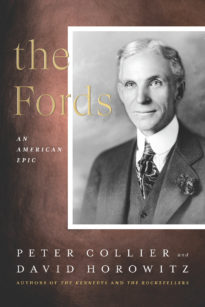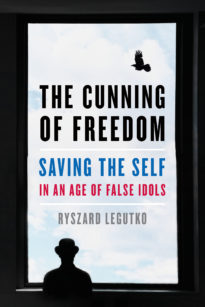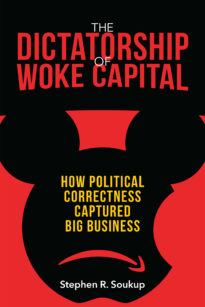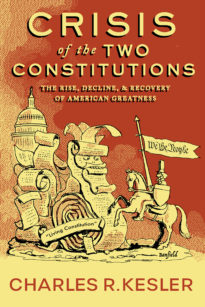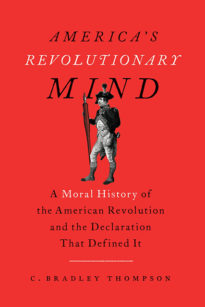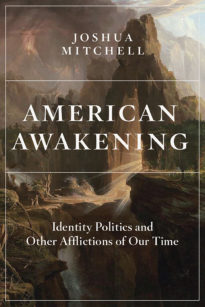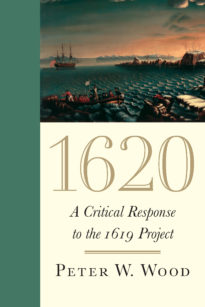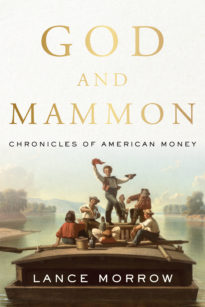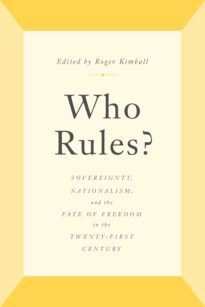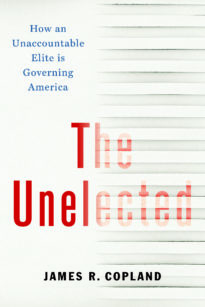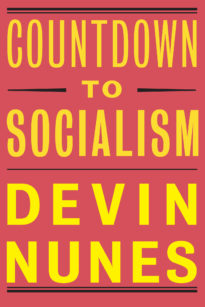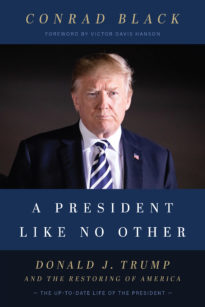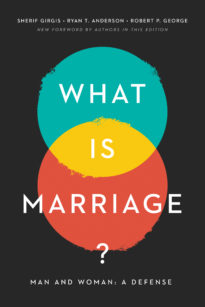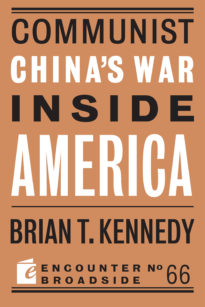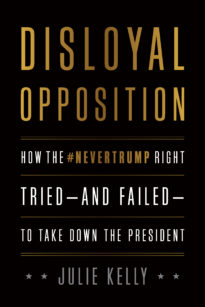Free shipping on all orders over $40
New Releases
The Fords An American Epic
In The Fords: An American Epic, Peter Collier and David Horowitz tell the riveting story of three generations of Fords, a dramatic story of conflict between fathers and sons played out against the backdrop of America’s greatest industrial empire.
The Cunning of Freedom Saving the Self in an Age of False Idols
This book has two currents. The first is an analysis of the three concepts of freedom that are called, respectively, negative, positive, and inner. Negative freedom is defined as an absence of coercion, positive freedom as an ability to rule oneself and others, inner freedom as being oneself; that is, being theof one’s decisions.
The Dictatorship of Woke Capital How Political Correctness Captured Big Business
For the better part of a century, the Left has been waging a slow, methodical battle for control of the institutions of Western Civilization. During most of that time, “business” – and American Big Business, in particular – remained the last redoubt for those who believed in free people, free markets, and the criticality of private property. Over the past two decades, however, that has changed, and the Left has taken its long march to the last remaining non-leftist institution.
Crisis of the Two Constitutions The Rise, Decline, and Recovery of American Greatness
American politics grows embittered because it is increasingly torn between two rival constitutions, two opposed cultures, two contrary ways of life.
America’s Revolutionary Mind A Moral History of the American Revolution and the Declaration That Defined It
America’s Revolutionary Mind is the first major reinterpretation of the American Revolution since the publication of Bernard Bailyn’s The Ideological Origins of the American Revolution and Gordon S. Wood’s The Creation of the American Republic.
The purpose of this book is twofold: to elucidate the logic, principles, and significance of the Declaration of Independence as the embodiment of the American mind; and to shed light on what John Adams once called the “real American Revolution”—that is, the moral revolution that occurred in the minds of the people in the fifteen years before 1776.
American Awakening Identity Politics and Other Afflictions of Our Time
America has always been committed to the idea that citizens can work together to build a common world. Today, three afflictions keep us from pursuing that noble ideal. The first and most obvious affliction is identity politics, which seeks to transform America by turning politics into a religious venue of sacrificial offering.
1620 A Critical Response to the 1619 Project
When and where was America founded? Was it in Virginia in 1619, when a pirate ship landed a group of captive Africans at Jamestown? So asserted the New York Times in August 2019 when it announced its 1619 Project. The Times set out to transform history by tracing American institutions, culture, and prosperity to that pirate ship and the exploitation of African Americans that followed. A controversy erupted, with historians pushing back against what they say is a false narrative conjured out of racial grievance.
God and Mammon Chronicles of American Money
This book is about the partnership of God and Mammon in the New World—about how Americans have made money and lost money, and about how they have thought about that obsessive and peculiarly American subject. Money is the basic American thing, the life’s blood of the country.
Who Rules? Sovereignty, Nationalism, and the Fate of Freedom in the 21st Century
The populist phenomenon is often identified with the election of Donald Trump in November 2016. But the political, moral, and social realities for which Trump was a symbol both predated his candidacy and achieved independent fulfillment in countries as disparate as the United Kingdom, Hungary, and Brazil.
The Unelected How an Unaccountable Elite is Governing America
America is increasingly polarized around elections, but as James R. Copland explains, the unelected control much of the government apparatus that affects our lives. Congress has largely abdicated its authority. “Independent” administrative agencies churn out thousands of new regulations a year. Courts have enabled these agencies to expand their powers beyond those authorized by law—and limited executive efforts to rein in the bureaucratic behemoth. No ordinary citizen today can know what is legal and what is not.
Countdown to Socialism
The Democratic Party has changed beyond recognition. Once the party of anti-communism and tax-cutting under President Kennedy, it is now dominated by a surging socialist movement and led by a presidential candidate who vows to “transform” America.
A President Like No Other Donald J. Trump and the Restoring of America
Conrad Black turns his attention to his “friend” President Donald J. Trump and provides the most intriguing and significant analysis yet of Trump’s political rise.
What Is Marriage? Man and Woman: A Defense
Until yesterday, no society had seen marriage as anything other than a conjugal partnership: a male-female union. What Is Marriage? identifies and defends the reasons for this historic consensus and shows why redefining civil marriage is unnecessary, unreasonable, and contrary to the common good.
Communist China’s War Inside America
The People’s Republic of China and the United States are today at war. It is being fought with the use of information, politics and finance. The Chinese believe that, as in all war, it would be better to win without engaging the enemy on the battlefield or having to resort to the likes of nuclear weapons if it can be avoided.
Disloyal Opposition How the NeverTrump Right Tried—And Failed—To Take Down the President
The election of Donald Trump in 2016 didn’t just shock the country, it jolted the Republican Party and forced an overdue reckoning between rank-and-file Republicans and party leadership. Long-held beliefs promoted by the Republican Party establishment were smashed in real time as Republican voters, and millions of Obama voters especially in the Midwest, rejected the bi-party consensus on illegal immigration, international trade pacts, and losing foreign wars. The GOP—and the conservative movement—was upended by a brash Manhattan mogul who connected with coveted working-class voters in a way no other Republican presidential candidate had in three decades.
